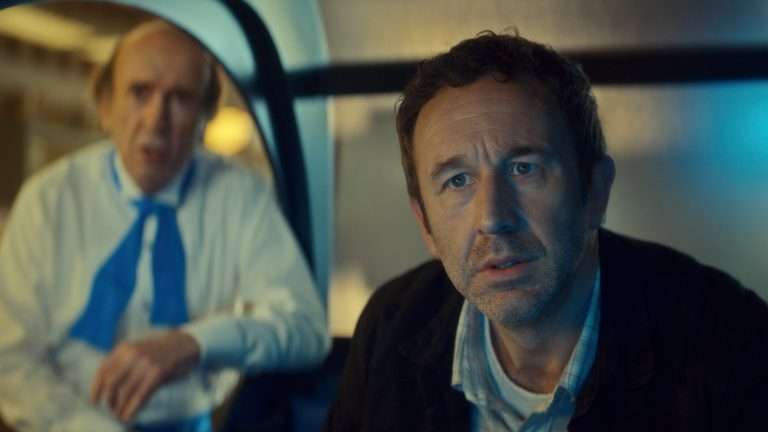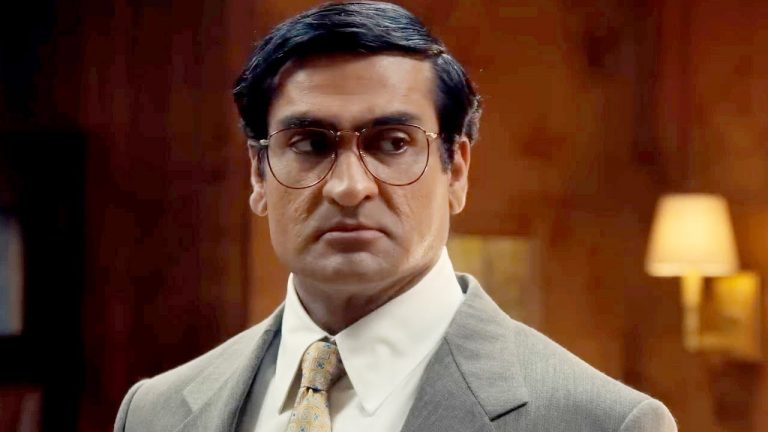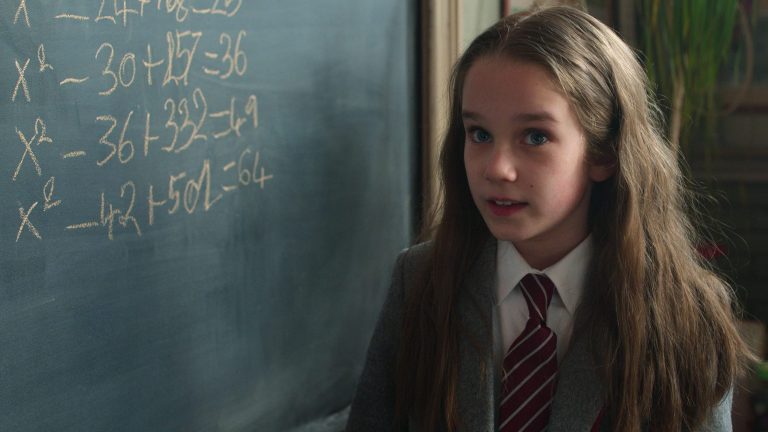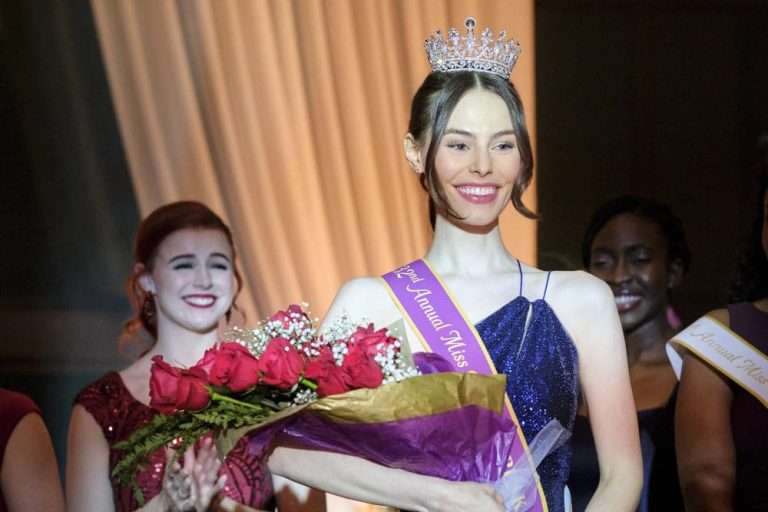Knock At The Cabin (2023) Movie Review: Knock at the Cabin, M. Night Shyamalan’s latest film, is a story that parcels an eerie nightmare about Doomsday being a repercussion of the global climate crisis. Four armed strangers arrive at a cabin and inform the family vacationing in the woods that the apocalypse will only come to a stop if they make a horrible sacrifice for humanity’s sake. The family in the woods consists of two fathers (a queer couple), Eric and Andrew, and their adopted daughter, Wen. Thankfully, we are past the years when we would have to applaud a filmmaker’s effort toward the token representation of queer characters in their scripts.
Shyamalan, however, deserves some praise for centering this home-invasion story around a queer couple, a concept still quite bleak in studio-backed Hollywood movies but not entirely foreign anymore (case in point being Bodies Bodies Bodies from last year, which also features a queer couple as the protagonists). Unfortunately, when I read the film through the lens of contemporary gender politics, it appears to be treading murky waters for no explicable reason.
Demanding a queer couple sacrifice something they love to keep God (or nature) from unleashing their anger on humanity seems to come from a place of bigotry, not that I personally believe it may have been the initial intention of the movie. Further, as the movie progresses and you witness the kinds of destruction that ravage human life, you are almost bound to root for the separation or loss of this queer couple because the entirety of the human race now stands at the brink of extinction. You may not be able to help but sneer at the stubbornness they show in love, despite witnessing glimpses of the long and difficult journey that Eric and Andrew have had to traverse to finally arrive at this moment of happy vacation in their lives.
In the end, when they are bound to make a decision for the sake of saving humanity, their already-threatened collective queer identity is destroyed. While researching for this think-piece, I came across a review of the film telling its readers that Shyamalan’s film bends a “knee to wokeism,” “often repulses” its audience, and appears to assume that a viewer will unquestioningly accept this modern family unit. It also seems to suggest that Knock at the Cabin doesn’t shy away from portraying the consequences of an alternative lifestyle. The morally grey area this film then threatens to expose everyone’s inherent homophobia.
Whatever the movie may have been trying to put forward, it comes across as a twisted Christian parable about how the earth would be better off without queer people (otherwise or in love). I specifically mention Christianity here because, towards the end of the film, it is revealed that the four strangers are the four Horsemen of the Apocalypse (a forceful incorporation in the screenplay that was initially missing in the book from which the film has been adapted, The Cabin at the End of the World by Paul G. Tremblay) albeit in a twisted modern way.
These four Horsemen fail to convince me not because they are dressed in modern clothes and bear medieval-looking weapons but because they cannot exactly explain the purpose of their arrival clearly. They are as helpless as the couple in the cabin. It appears that they are suffering from a “shared delusion,” a 21st-century-specific ailment, as Andrew puts it, in a fit of rage.
Sadly, the opinions of people watching this movie are bound to differ because the storyline has hushed up the air of ambiguity surrounding the real identities of the four strangers. Unlike Tremblay’s book, which keeps the reader guessing about the truth behind these invaders and their sudden appearance at the cabin, Shyamalan’s feature tries to make some sense but gives up midway.
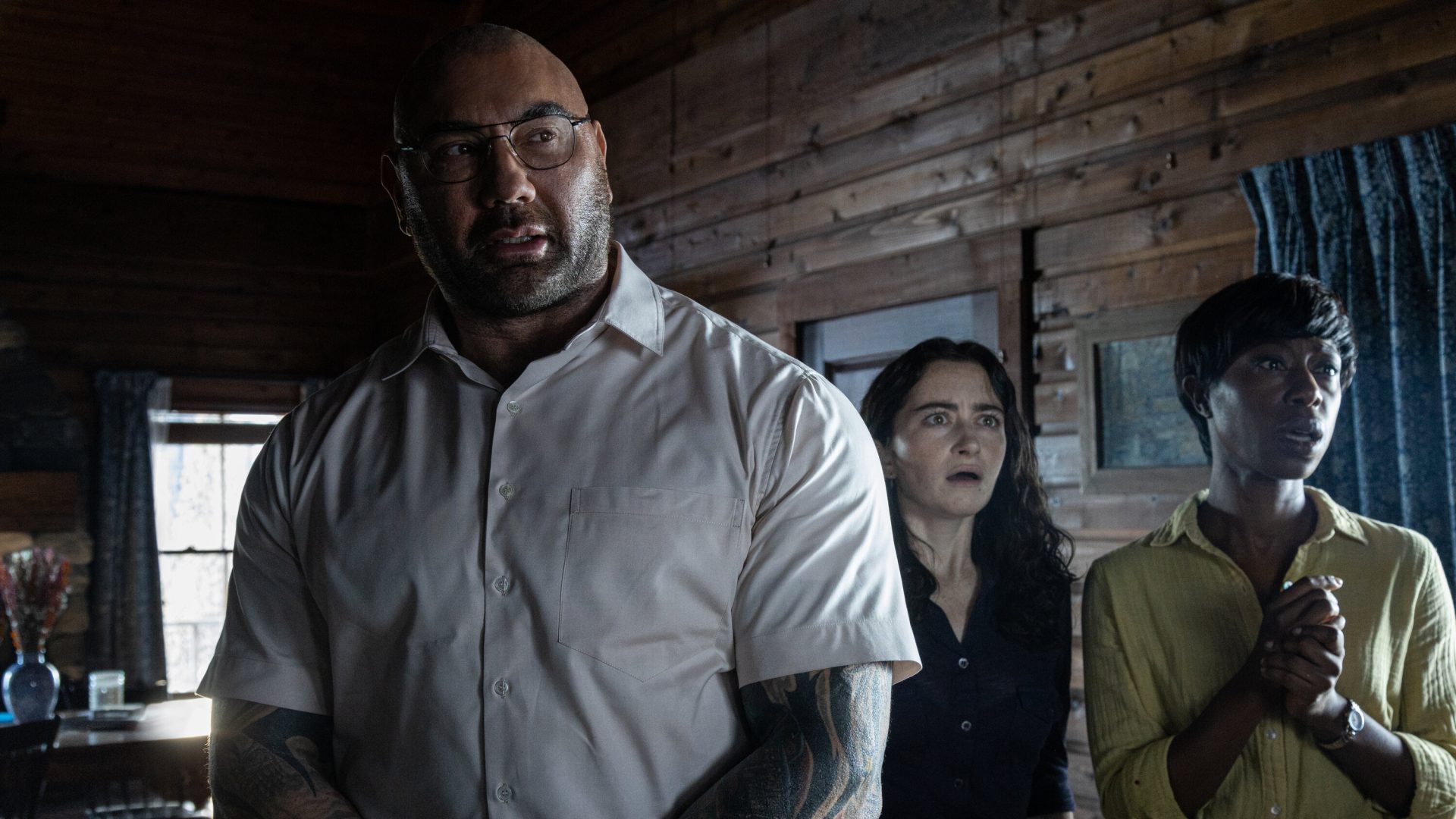
The screenplay is almost conscious of how the film’s intentions might be misread and decides to play smart. When the invaders come to know that it is the family of a queer couple, they spend a good few minutes trying to convince Eric and Andrew that they had no idea about their queerness. In fact, Sabrina, the nurse, also vouches that they don’t have one homophobic bone in their bodies.
According to these four strangers, they have dreamt of a few signs and met each other on a message board; that is hardly believable. The unlikely chance that it is not a targeted attack is further driven home when one of the strangers, Redmond, turns out to be a homophobe who had attacked Andrew at a bar in the past. Shyamalan dangles this interesting piece of information in front of us and leaves it hanging like a piece of loose thread while assembling the supernatural forces for his story to march toward a confusing conclusion.
Further, in the context of queerphobia, you could also read the conversation about the “light” that recurs in the film as a way to brainwash one of the queer characters into the homophobic understanding of right-winged religious organizations. For example, when the invaders are trying to enter the cabin, they get into a fight with Eric, who eventually suffers from a concussion or a chink in his morale.
The sustained pressure to understand the truth about the human condition and Eric’s vision of the “light” can be read as the slow penetration of the bigots’ ideas into their happy family that succeeds in ultimately ripping it apart. The choice certainly lies in Eric’s hands, but you cannot look beyond the pressure that has been mounted on him to accept the world as an essentially queerphobic place. It is heartbreaking to see a film promote hate crime so blatantly and garner such positive responses from audiences around the globe.
If the story insists on holding up the queer couple as being bound by true love strong enough to save humanity, it isn’t a fair representation of queers in any form. I almost wished that the four alleged horsemen of the apocalypse came out as queerphobic instead of watching a 100-minute-long film that somehow wants the audience to believe that a sacrifice made by LGBTQ+ people will save humanity. In fact, it also appears to brush concerns about queerphobic incidents experienced by the couple under the carpet due to its inability to come clean about the real identities of the four horsemen.
Is the film queerbating its audience to find resonance across all sections of society in the spirits of wokeism? If I were to answer this question, my response would be positive. Knock at the Cabin is uneasy because of its political inclination despite trying its best to be open-ended in the most Shyamalan way possible. It mirrors queer joy and queer angst only to subtly leave behind a threat for every queer person watching it – the Horsemen of the Apocalypse may be coming for them next!




